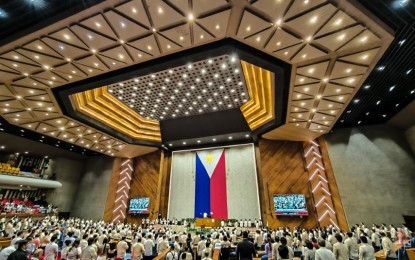MANILA – Deputy Speaker and National Unity Party (NUP) chairperson Ronaldo Puno called for a Constitutional Convention (ConCon) to undertake a comprehensive review of the 1987 Constitution, aiming to address “enduring ambiguities” and deficiencies that weaken its legal foundations and undermine its reliability as the nation’s supreme law.
In a privilege speech, the Antipolo First District congressman stated that the ConCon is “the most prudent, transparent, and participatory mechanism” to clarify vague provisions and implement necessary reforms in the 1987 Charter.
“Today, I submit to this august chamber that while the provisions of our constitution are noble in aspiration, certain provisions are marked by ambiguity and procedural deficiency. These deficiencies do not merely complicate interpretation. They obstruct reform, hinder effective governance, and erode public trust,” he said.
Puno emphasized that his proposal “is not a call to discard the Constitution. It is a call to complete and correct it.”
He explained that a ConCon would enable the people, through their elected delegates, to rectify textual deficiencies, resolve contradictions, eliminate ambiguities, institutionalize much-needed reforms, and ensure the foundational law meets the needs of a dynamic and democratic society.
According to Puno, the ConCon approach, as opposed to a constituent assembly, ensures “singularity of purpose,” preventing delegates from being distracted by lawmaking, oversight functions, or impeachment concerns.
“Conflict of interest would be avoided, broader representation guaranteed, and the risk of political expediency reduced,” he added.
He highlighted several instances where ambiguous provisions and textual flaws weakened the Charter’s legal standing.
One recent example, he noted, is the interpretation of the word “forthwith” in Article XI, Section 3(4) on impeachment, which was intended as a procedural safeguard against delays but has instead led to deadlock and controversy.
This case alone demonstrates how a single ambiguous word “can become the justification for legislative inaction, procedural manipulation, or worse, the loss of accountability itself,” he said.
He argued that such constitutional ambiguities create loopholes, trigger political crises and institutional paralysis, undermine the rule of law, erode public trust, and leave citizens disillusioned with the institutions meant to serve them.
“Mr. Speaker, I do not stand before this Chamber to prescribe solutions to these complex legal dilemmas. But I do contend, with deep conviction, that the Filipino people deserve a constitution that speaks plainly and very clearly,” Puno said.
“As the supreme law of the land, the constitution must speak with clarity and force. Its provisions must be comprehensible not only to courts and legislators but to the citizens whose rights it enshrines,” he concluded.






